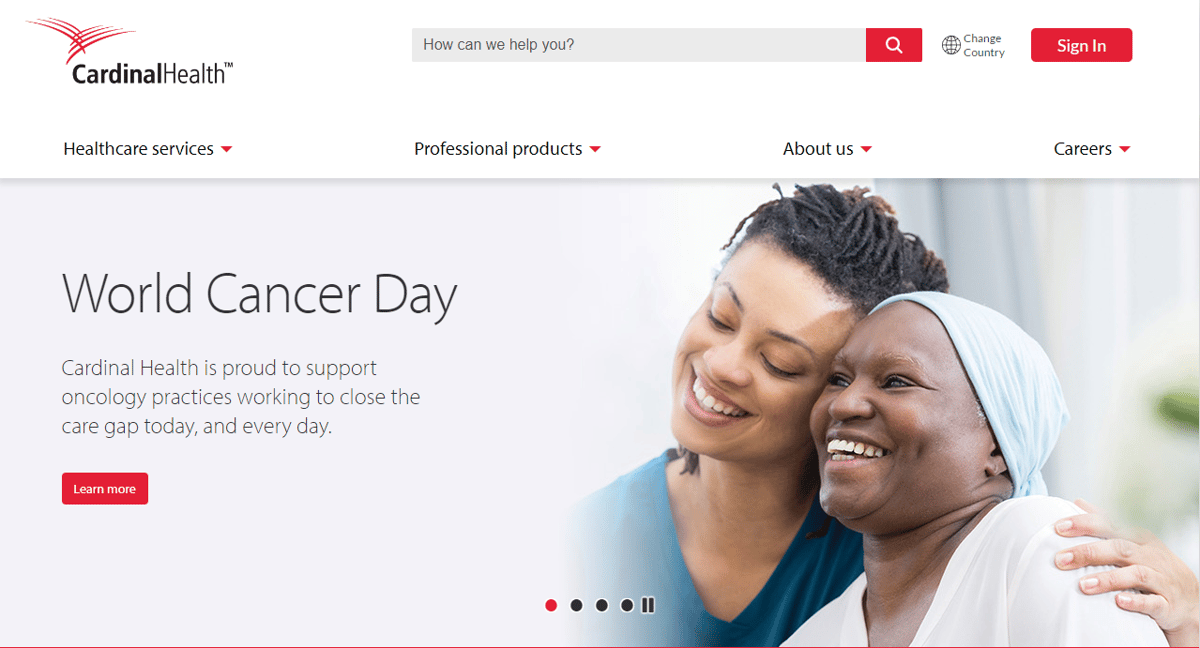Helpful summary
- Overview: We offer tips for successful mentoring at work, focusing on benefits for both mentor and mentee, including goal setting, support, and accountability.
- Why trust us: We've helped numerous mentors and mentees, by offering a unique platform where mentors like Vladimir Botsvadze share their expertise in digital transformation and marketing .
- Why this is important: Becoming a mentor can enhance leadership skills, job satisfaction, current knowledge, and networking for both parties involved.
- Action points: To become a mentor, we suggest making yourself available, developing a mentoring mindset, setting clear expectations, providing guidance, and celebrating wins.
- Further research: Explore platforms like MentorCruise to connect with mentees and further develop your mentoring skills.
Whether you’ve been asked to take someone under your wing or want to offer guidance for your volition, becoming a mentor can benefit both you and the mentee.
In this MentorCruise article, we provide our best tips for developing an effective mentorship program that leads to growth and success for all involved. From establishing goals and expectations to providing support and accountability, let’s walk through the key elements of becoming a mentor at work.
Let’s start!
Why listen to us?
Our personalized matching system, flexible scheduling, and commitment to a high-quality mentorship experience make us a trusted partner in your professional development journey. Whether you're looking to advance your career, learn new skills, or navigate the complexities of the tech world, business, career, design, and more, MentorCruise is here to support you every step of the way.
What is a mentor at work?
A mentor at work is someone who provides guidance and advice to help you develop your career. Mentoring relationships can be formal, where a company assigns a mentor to an employee, or informal, where you find a mentee on your own.
Either way, a good mentor can help you learn the ropes, gain valuable experience, build confidence, and navigate your career path.
The role of a mentor is to offer advice and support to help individuals reach their full potential at work. Some of the ways a mentor at work can help include:
- Providing career guidance: A mentor can assist in setting career goals and determining the best path to achieve them. They may also help evaluate job opportunities or career changes.
- Sharing knowledge and experience: An effective mentor will pass on lessons they’ve learned to help their mentees avoid mistakes and emulate their successes. They can provide helpful advice for handling challenges unique to the mentee’s role or company.
- Building confidence: By providing encouragement and helping develop new skills, a mentor can help build employee self-assurance at work, which leads to higher motivation to take on more responsibility and advance their careers.
- Helping set boundaries: When struggling to balance work and life demands, a mentor can help establish reasonable expectations and set healthier limits. A mentor might have likely dealt with similar challenges and can offer empathy and advice.
MentorCruise is your go-to mentorship platform designed to bridge the gap between aspiring mentors and individuals seeking valuable career advice across diverse industries like software engineering, data science, design, and business. Here, mentors from renowned companies share their expertise to nurture professional growth.
Our mission at MentorCruise is to make personalized mentorship accessible and affordable, all while establishing clear expectations for both mentors and mentees. We are committed to delivering quality mentorship by carefully selecting, vetting, and consistently evaluating our mentors.
MentorCruise Example: Matthew Standage
With a passion for teaching design and UX to a diverse range of students worldwide, Matthew Standage has honed his skills and leadership qualities through mentorship.
Drawing from his rich background in graphic communication and years of hands-on experience, Matthew offers mentorship tailored to individuals seeking to establish or elevate their careers in UX or product design.
Through mentorship, Matthew not only cultivates the next generation of design talent but also hones his leadership abilities and expands his own horizons.
Here are the key features of MentorCruise that can help you on your mentoring journey:
- Curated Mentorship Matches: MentorCruise employs a comprehensive matching algorithm to connect mentees with mentors based on specific career goals, interests, and preferred mentorship styles.
- Tailored Learning Plans: Once matched, mentors work with their mentees to develop personalized learning plans. These plans outline clear goals, milestones, and actionable steps to help mentees achieve their professional objectives.
- Direct Messaging and Video Calls: Our platform supports integrated messaging and video call functions to facilitate real-time discussions and virtual mentorship sessions, allowing for immediate feedback and in-depth discussions on various topics.
- Flexible Scheduling: By recognizing the busy schedules of both mentors and mentees, MentorCruise offers a flexible approach to planning sessions.
- Feedback and Evaluation: Our platform offers regular feedback and evaluation mechanisms to assess the progress of mentees and ensure the mentorship is meeting its intended goals.
- Broad Range of Topics and Industries: MentorCruise covers over 5,000 skills, topics, and companies, offering a vast spectrum of knowledge and expertise across various fields, including software engineering, data science, design, marketing, and business.
- Dedicated Career Coaching: We provide access to a dedicated career coach or mentor to help with job interviews, startup building, learning high-demand skills, and more. This personalized mentoring approach includes curated study plans, regular check-ins, and unlimited actionable support.
Mentors at Work Case Study: Cardinal Health

In 2013, Cardinal Health recognized the potential for improvement in their mentorship programs as a crucial element of employee development.
While having existing mentorship initiatives, these were often isolated and informal, lacking clear goals and resources. To address this, the talent development team established a formal, company-wide mentorship program to assign, support, and monitor mentoring relationships across all employee levels.
The aim was to reduce administrative burdens and enhance the frequency and effectiveness of mentoring relationships, defined by their impact on participants' ability to give and receive feedback.
Benefits of becoming a mentor at work
Becoming a mentor at your company has many advantages, both for you and your mentee. Here are the benefits of becoming a mentor at work:
Develop leadership skills
Mentoring someone else helps strengthen skills like communication, delegation, and managing others. It allows you to share your knowledge and experiences constructively. These are all valuable leadership qualities that will benefit you in your career progression.
Job satisfaction
Helping another person achieve their goals and advance in their role can lead to a sense of fulfillment and purpose. Mentoring provides an opportunity to give back and make a meaningful impact on someone else’s life. This can increase your motivation and morale at work.
Stay up-to-date with current knowledge
Mentoring exposes you to fresh perspectives and new ideas from your mentee. It also encourages you to re-examine your approaches and assumptions to stay up-to-date with innovations in your field. You and your mentee can learn from each other through an open exchange of thoughts and opinions.
Networking
A mentoring relationship allows you to expand your network like a pro. Your mentee gains exposure to other leaders and teams through your connections. On the other hand, you gain an ally and new contact in your mentee that can lead to new opportunities for collaboration, partnerships, or career planning for both parties.
How to become a mentor at work?
Mentoring coworkers is a rewarding experience and helps strengthen your organization. Here are some tips to become an effective mentor:
1. Make yourself available
Let your coworkers know you’re interested in mentoring by sending an email, posting about it on your company’s internal social network, or just starting conversations with colleagues you’d like to mentor. Make it clear you’re willing to share your knowledge and experience to help others advance in their careers.
2. Develop a mentoring mindset
A good mentor aims to empower their mentees, not just dictate orders. Focus on active listening, ask insightful questions, and provide constructive feedback to help your mentees gain confidence in themselves.
You may also share your successes and failures to help them learn from your mistakes and experiences.
3. Set clear expectations
Discuss goals, priorities, and logistics upfront with your mentees. How often will you meet? What do they hope to gain from the relationship?
Come prepared with suggestions for ways you can support their needs. Be transparent about what you can commit to as a mentor.
4. Provide guidance and advice
Share your knowledge, skills, and network to help set your mentees up for success. Recommend resources for their development, review their work, role-play challenging scenarios, and help them navigate workplace politics.
5. Celebrate wins
Cheer on your mentees as they achieve milestones and wins, no matter how small. Send a message of congratulations or take them out for coffee or lunch. Let them know you see their progress and are proud of their growth. Celebrating success together will keep you both motivated to continue the mentoring relationship.
MentorCruise Mentor Stories: Vladimir Botsvadze

Vladimir Botsvadze is a globally recognized professional with over 15 years of experience, standing out as a top influencer in digital transformation and marketing.
Recognized as the No. 1 Global Marketing Thought Leader by Thinkers360, Vladimir's decision to become a mentor was a natural evolution, driven by a desire to share his wealth of knowledge and empower both startups and established brands in navigating the ever-changing digital landscape.
Mentees seek Vladimir's guidance for professional growth and strategic innovation, drawing from his expertise in high-performance strategies, brand presence amplification, and navigating the dynamic marketing and digital transformation landscape.
For Vladimir, being a marketing mentor is a mutually enriching experience. It not only allows him to contribute guidance and expertise but also fosters personal growth by learning from the challenges and perspectives of mentees.
Best practices for mentoring at work
As a mentor, here are some tried-and-tested best practices to ensure you’re effective in supporting and guiding your mentee:
Build rapport and trust
Make an effort to get to know your mentee personally and professionally. Be transparent, follow through on commitments, and keep conversations confidential. Building trust will make your mentee more open to feedback and willing to share challenges.
Set clear expectations
Discuss goals, priorities, and logistics like meeting frequency and ground rules, so that you’re on the same page about what you both want to gain from the experience. Review and revise as needed to keep the relationship productive.
Listen actively
Focus on understanding your mentee’s concerns, priorities, and perspectives – these are just some ways to provide value to a mentee. Ask open-ended questions to encourage reflection and make sure you understand the issues fully.
Challenge and encourage
Mentoring should push your mentee outside their comfort zone in a supportive way. Set high but realistic expectations and encourage them to stretch themselves through new experiences and responsibilities.
Share relevant experiences
Discuss examples, in the form of both successes and failures, from your own career journey that can provide guidance. Your hard-earned wisdom and advice can help your mentee navigate obstacles. However, don’t make the relationship solely about you – maintain an outward focus on your mentee’s needs.
Uncover mentorship opportunities with MentorCruise
Mentoring someone can be incredibly rewarding. Helping another person achieve their potential and advance in their career can lead to a lasting sense of fulfillment for you both. While it does require an investment of time and effort, the benefits to mentees, mentors, and organizations are well worth it.
MentorCruise allows you to uncover opportunities to share your skills by connecting you with individuals seeking valuable guidance. Our platform offers a professional space for you to make a meaningful impact and shape the career journeys of fellow professionals.
Request a demo here!


